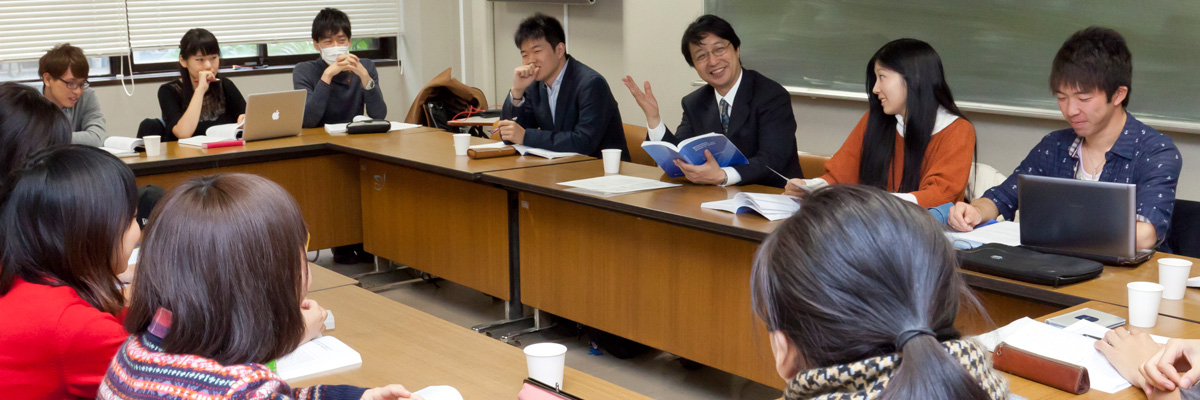Curriculum
With the aim of developing people with broad and deep legal knowledge and international insight, the Faculty of Law upholds the following curriculum:
First, the Faculty offers a highly flexible curriculum so that students can either spontaneously expand their fields of interest or deepen their learning in certain fields. The Faculty offers a wide range of courses in each of the following specialized fields: basic science of law, public law, international law and international relations, civil law and civil procedure, corporate and economic law, criminal law, law and language, and global networks. Through four years in the Faculty, students can, by selecting courses on their own, either take a variety of courses in all fields or learn intensively in fields of particular interest. Moreover, most fields offer specialized subjects that can be taken from the first year, allowing students to create a learning plan in the early stages of their university life. A uniform, rigid curriculum is avoided to broaden the interests of each student and produce diverse people.
Second, under such a rather free curriculum, the Faculty encourages students, who are in the early stages of learning, to learn step-by-step so that they will take courses in an appropriate and systematic manner. The courses offered by the Faculty of Law are divided into three groups: introductory, basic, and advanced. The introductory group includes basic courses where basic skills required for the study of jurisprudence and international relations, that is, skills that all students in the Faculty of Law will need are developed. These courses are compulsory electives for freshmen and sophomores. Moreover, students must take more than a certain number of courses in the basic group, which are designated to be taken in the first term (first two years) in order to advance to the second term (junior and senior years). Thus, the curriculum is designed in such a way that it encourages students to first take introductory and basic courses while ensuring diversity in elective fields.
Third, the curriculum is designed to secure systematic and intensive learning in each specialized field. After advancing to the second term, students choose either the jurisprudence course or the international relations course and intensively study subjects offered in each course, which ensures systematic learning in a specific field.
Fourth, students in the second term are required to take seminars to ensure that all second-term students are provided with opportunities to acquire expertize in specialized fields through small group learning. Seminars aim to deepen students’ expertise required in a specific field through interactive discussions with other students and instructors while enhancing the abilities to analyze problems in a multilateral and logical manner, to express own opinions in a clear and compelling manner, and to communicate with others to deepen discussions. In addition, in each seminar, students are required to submit their graduation theses as a fruit of their four years of study in the Faculty of Law.


